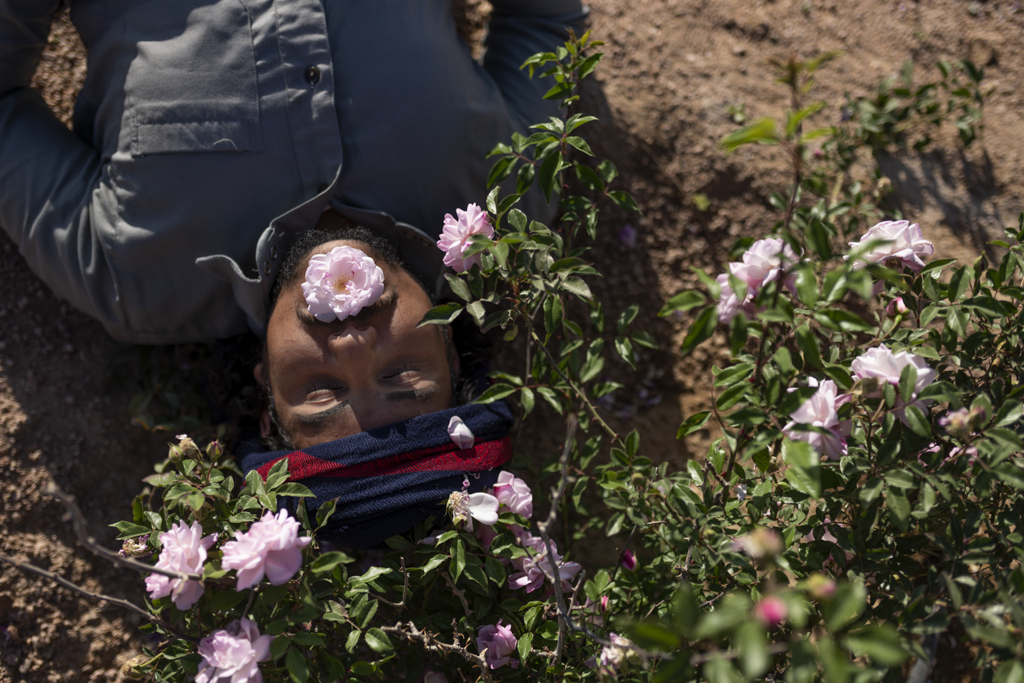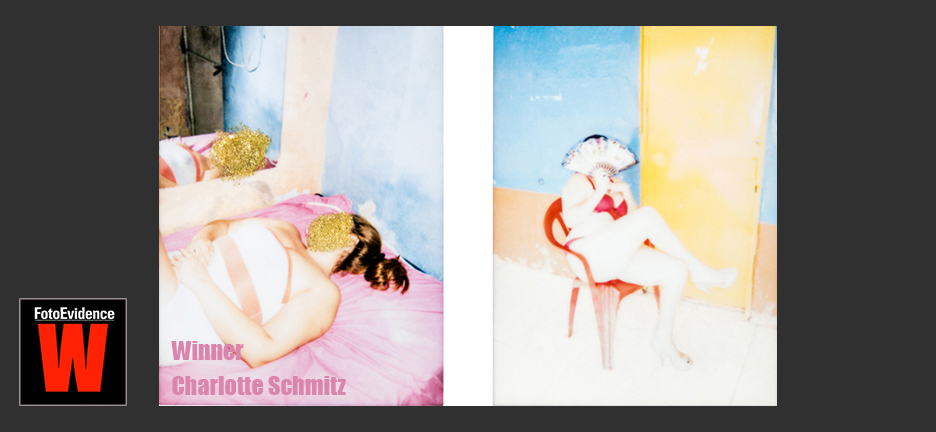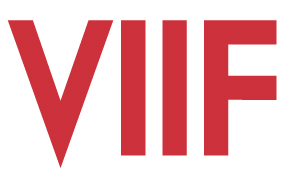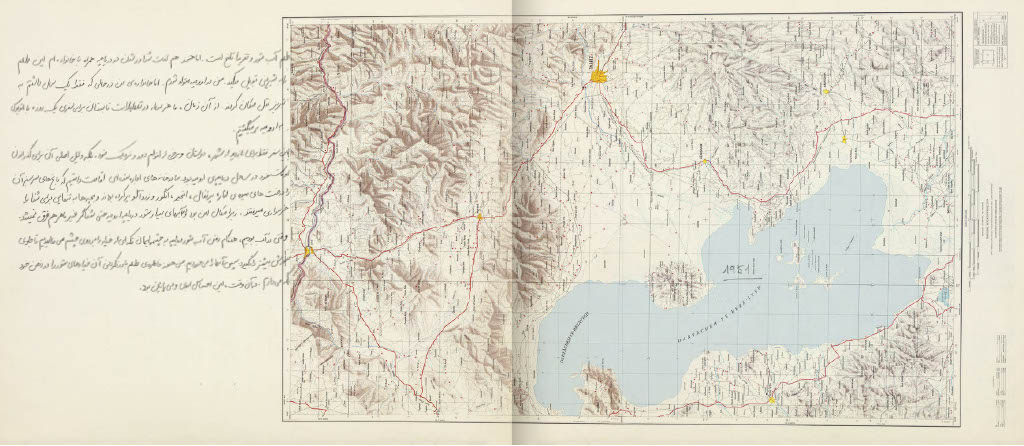The W Award Years
HONORABLE MENTIONS
- September Bottoms
- Zohreh Sabaghnejad
Rehab Eldalil was selected as the winner of the 2022 FotoEvidence W Award with her project The Longing of the Stranger Whose Path Has Been Broken. She was selected by the jury, Elizabeth Krist, Martina Bacigalup, Tasneem Alsultan and Svetlana Bachevanova from among 70 applicants from 26 countries. The finalists are September Dawn Bottoms with Remember September and Zehreh Sabaghnejad with Dancing in the Dust.
REHAB ELDALIL WINS THE 2022 W AWARD
with The Longing of The Stranger Whose Path Has Been Broken

Moussa Algebaly (25) from the Jebeleya tribe lies under the tea flower plant after daily maintenance in his garden in Al Tarfa, South Sinai, Egypt. April 2020. When boiled, the tea flower plant helps reduce period and labour pain for the Bedouin women who struggle to find medical care. After years of drought, a major flood occurred in mid-March 2020, providing an agricultural opportunity for the Bedouin community amid the economic impacts caused by the pandemic. For the community whose main source of income is tourism, the flood is a miracle. The land has given back to its keepers in the time of crisis. Photo: Rehab Eldalil from the series The Longings of a Starnger Whose Path Has Been Broken.
Rehab Eldalil was selected as the winner of the 2022 FotoEvidence W Award with her project The Longing of the Stranger Whose Path Has Been Broken. She was selected by the jury, Elizabeth Krist, Martina Bacigalup, Tasneem Alsultan and Svetlana Bachevanova from among 70 applicants from 26 countries. The finalists are September Dawn Bottoms with Remember September and Zehreh Sabaghnejad with Dancing in the Dust.
The Longing Of The Stranger Whose Path Has Been Broken is a personal project in which I reconnect to my roots and work collaboratively with the Bedouin community to explore the notion of belonging and the disconnectedness of people and land.
The project focuses on the process of finding and seeking the meaning of belonging cited through the Bedouin community of South Sinai, Egypt. The community are participants in the creative process. I’m using their commentary of embroidery, poetry, sound and storytelling to link my photographic work with topics of representation and social injustice. The final outcome is a complementary collection of photographs, embroidery, artifacts, poetry and multimedia.
Bedouins of Sinai survived wars, colonialism, drought, and pandemics. But like many indigenous communities, they are commonly misrepresented in the media, portrayed as isolated from, and a threat to, modern society. And struggling to secure civil rights. Throughout it all, they remain the keepers of the land, protecting it from harm as it provides them with blessings in return. This interconnectedness, forged over the centuries, accounts for the community’s resilience in the face of challenges. And it’s this interconnectedness which survived in my blood and drew me back to find my roots and way home. This project has been my opportunity to process my estranged Bedouin ancestry.
Read the interview with Rehab Eldalil.
THE FOTOEVIDENCE W AWARD
The FotoEvidence W Award for Personal Story will be granted by an international jury to one woman whose work merits a book. The hardbound book will be published by FotoEvidence. Two other photographers will receive honorable mentions.
Submission period: October 1st- November 1st, 2023
The jury reserves the right to not award a grant in any given year if they determine that no candidate has met the criteria.
The winner of The W Award will be announced on the 20th January, 2024 at the FotoEvidence website.
• The W Award is open to all adult women photographers.
• Submit up to 15 images from one project or a lowres PDF of the work already developed as a book concept . If you are selected for the award you will be asked to submit 100-120 photographs on the same topic.
The W Award is governed by FotoEvidence Association terms and conditions. Please review the terms and conditions before submitting. During the submission process you will be asked to confirm that you have read and agreed to the terms and conditions.
If you experience difficulties submitting your application please contact technical support at Nabeel@fotoevidence.com
To enter the FotoEvidence Women Award register here.
Once your registration has been confirmed, you will be asked to follow submission procedures:
• Fifteen photographs with titles and captions. Photographs without captions in the file info will be rejected.
• Each image should be 72 dpi and 1024 pixels on the longest side. (The system will reject bigger files).
o RGB mode
o JPEG format
o Maximum quality
o Filename: Lastname_Firstname_ project title e.g. Smith_Jane_Women at Work
• A lowres PDF of the work if it is already developed as a book concept with your statement of up to 1500 words about the work.Tell us how do you envision the book. (Upload it Under Statement)
• Resume/CV
• Entry fee: Free to submit with a suggested donation of $20. This year is challenging for all of us and we'll appreciate your donation. Contributions collected during the submission process support the production of the winning book. You can also choose to support us by purchasing a book from the previous recipients of the W Award: La Puente by Charlotte Schmitz and The Eyes of Earth by Solmaz Daryani.
All applications should be based on a long-term projects and should reflect the personal experince of the photographer. All photographic media are accepted.
Photographers may submit more than one portfolio. A separate application is required for each entry.
Please check the box that indicates you have read and agreed to the terms and conditions.
For problems with The W Award submission, contact: nabeel@fotoevidence.com
DEADLINE AND TIMEFRAME:
Submissions for the 2023 W Award must be received between October 1st and November 1st 2023 (23:59:59) CET
The winner of the W Award will be announced on the 20th January 2024 at the FotoEvidence Association website.
USAGE RIGHTS:
All published images will be credited with the photographer’s name. Copyright and ownership of photographs remain with the photographer/photographers at all times. Entrants agree to grant FotoEvidence permission to use submitted work for promotional purposes in any electronic media, printed materials, or advertising, to be reproduced in third-party newspapers and magazines (printed and electronic) solely for the purpose of promoting the work, the photographer, FotoEvidence Association and The W Award.
The W Award prize winner(s) agree to the publication of their photographs as FotoEvidence hard bound books under the terms of the FotoEvidence book contract.
FotoEvidence Association team will collaborate with the photographer on editorial decisions in the development and publication of the book. Photographers will receive 25 complimentary copies of the book.
FotoEvidence Association reserves the right to reject entries that are not submitted properly. Submissions should come directly from artists or organizations. No exceptions will be made for late submissions.
The jury reserves the right to not award a grant in any given year if they determine that no candidate has met the criteria.
Questions:
info@Fotoevidence.com
“A lake is earth’s eye; looking into which the beholder measures the depth of his own nature.” Henry David Thoreau
Iran is facing severe water scarcity. Drought, rising water demand, degradation put pressure on society and leads to wider injustice and a big social/political crisis not only inside Iran but also with neighbouring countries. I grow up beside Lake Urmia which was once the largest lake in the Middle East, and the second largest salt lake on the planet. The nearly six million people who live in the Urmia basin have deep social and economic ties with this shrinking body of water. The Turk-Azeri people, who live around the lake, treasure it as a symbol of their identity, calling it “the turquoise solitaire of Azerbaijan.”
From the book The Eyes of Earth by Solmaz Daryani, published by FotoEvidence.
In this long term and personal story that I started in 2014, I tried to demonstrate the impacts of drying of Urmia Lake on my own family, ecosystem and people living around it to reflect the interconnectedness of humans and the environment.
The vanishing of Lake Urmia is much more than an environmental hazard; it is an emotional wound in the memory of people. For those of us who remember what this place once was, the lake is much more than a receding blue spot on the world map. It is a part of our identity, and we can only hope that it does not vanish forever.



